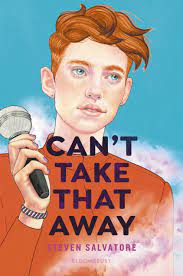The Power of Napping
December 22, 2022
Dear fellow fatigued individuals, do you need a nap right now? Whether you answered yes or no, I can assure you nonetheless, a nap is in your favor; consider one. I personally find myself weary, as if I’m a plant lacking sunlight and water, especially after a school day. One thing or the other manages to nag at me and tire me out throughout the entirety of my day, and recently, I took into consideration the capabilities of a single nap–even a mere twenty minutes. Each day after school I take a twenty minute nap. On the lengthy, work exclusive, and stressful-in-general days, I may even take up to an hour nap. But one thing I can confidently say, I wake up feeling a little better than before. I have more energy–more motivation to get things done–and my body aches a little less each time, too. The moral of the story is the mental and physical rejuvenation I experience truly has become a necessity. The benefits of napping are not limited and contribute to the wellness of both our body and our minds.
A statistic according to Thrive My Way emphasizes how crucial a nap would be; “A sixty-minute nap can boost our alertness for up to ten hours.” Alertness is the ability to be quick in reaction and vigilant–keeping you cautious of your surroundings. Individuals offering opposition to napping may argue that daytime sleeping is simply unproductive. While I see what this viewpoint is attempting to convey, a nap merely re-attains the energy we’ve lost throughout the day, replenishes our alertness, and thus, opens more doors for the productivity in question. A fact about napping available on WebMd is that it increases creativity, too–a nap surpassing a span of 60 minutes may activate more imagery inside of your brain – this is referred to as REM sleep. These casual, trivial naps truly offer a variety of beneficial side effects.
An additional topic that may be utilized as an opposition to napping is a study originating in China; the study found that napping for over 90 minutes was associated with high blood pressure in middle-aged and older women. While–to my knowledge–I can’t defy this study, I can assure you that nobody is forcing you to take naps for more than 90 minutes, and you can prevent this scare solely by setting an alarm for twenty minutes later. Time management is so vital in constructing a self-advantageous nap schedule. Know how long is too long and how short is too short of a nap.
Not only does napping reduce the effects of insufficient sleep, studies have also stressed that your physical performance enhances when you nap; according to WebMd, athletes experience better reaction times and endurance. You simply cannot go wrong with napping, as experts say relaxation harnessed from merely resting is a guaranteed mood booster, whether you fall asleep or not. Sometimes just departing from reality and finding comfort in the space of your own bed, letting your thoughts settle or even run a little wild is seriously a must–after all, humans crave comfort–acknowledging our thoughts is a very healthy way to maneuver through them.
A small trial observed evidence wherein naps inherently soothe stress, as well as support the immune system of people who are lacking in sleep. Studies have shown that sleep plays an important role in storing memories and naps are also a healthier, safer alternative to caffeine as well as more beneficial, bringing better memory and learning ability. Another study found that people who napped for 45 to 60 minutes had lower blood pressure after going through mental stress. Can you imagine a humanity well-rested, unfatigued, and more healthy?


